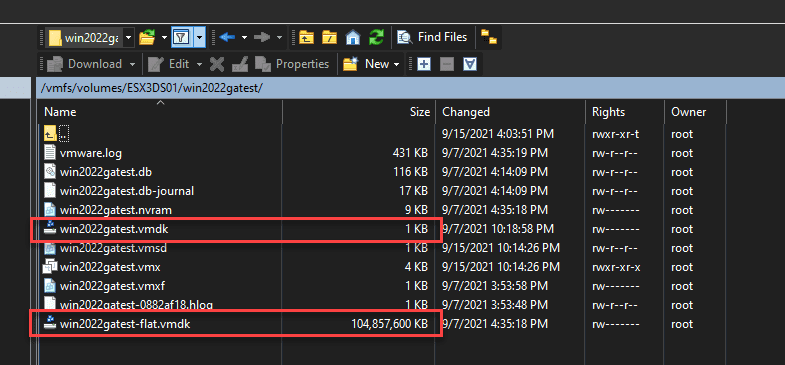

Locally, you can see both these files with their real size. Then, a message asking you to allow downloading multiple files emerges.
#DOWNLOAD VMDK FILE FROM DATASTORE FLAT DOWNLOAD#
The only moment when VMDK content comes to the fore is when you download the file. In Datastore browser, both the descriptor and the *flat.vmdk are displayed as a single VMDK volume. The *flat.vmdk file, in its turn, is where the VM data reside. The descriptor keeps such parameters as IDS, virtual hardware version, and disk geometry. What’s the difference between a VM descriptor and a vmdk? So even though restoring a VM from a -flat.vmdk file is pretty easy it isn’t my recommended method, you’re far better protected with good, reliable backups, then on hoping that the -flat.vmdk file is still laying around somewhere. You can also go back and delete the Recovery-flat.vmdk. Underneath it creates a virtual machine, uses KVM and so on.Ĭan You restore a VM from a flat.vmdk file? You can convert a VMware stream-optimized vmdk file to other vmdk file formats using the vmware-vdiskmanager commandline utility. VMware stream-optimized file format is a monolithic sparse format compressed for streaming.
For example: I tried guestmount, but it is very, very slow. The vmdk files are downloaded as stream-optimized files with the filenameOnce downloaded and installed: vmware-mount -p path_to_vmdk will show the partitions inside the VMDK file. How do I restore a VM from a VMDK file? Is there a way to mount a vmdk file?

There is Windows installed on one NTFS partition on a virtual disk of the VM.
#DOWNLOAD VMDK FILE FROM DATASTORE FLAT HOW TO#
Let’s consider how to mount a VMDK virtual disk of the VMware Workstation VM that has snapshots. You can mount VMDK virtual disk files if a VM that uses this virtual disk is powered off, or if a particular VM isn’t using this virtual disk.


 0 kommentar(er)
0 kommentar(er)
